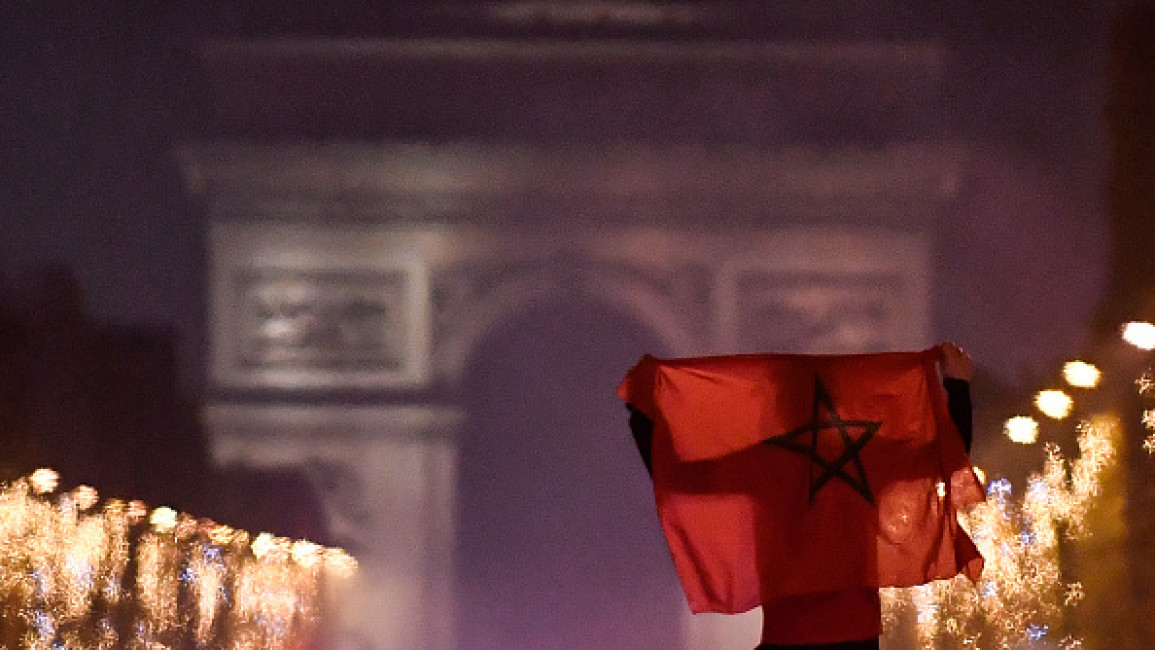
French is on the verge of disappearing in Morocco
Wandering the streets of Rabat, Casablanca or Marrakech, it can be surprising to hear young people using a few English words in the middle of a sentence in Darija (the Arabic dialect of Morocco) and even speaking in English to French tourists rather than in the visitors’ mother tongue.
For decades, French has been the leading foreign language in the country, with millions learning it at school or informally. But this tendency seems to have shifted recently, with more and more young Moroccans aiming to break free from the legacy of the ex-colonisers and the old bourgeoisie.
Indeed, many Moroccans of middle and low classes associate the French language with the French-speaking elite, who for the most part attend private French schools and communicate in that same language.
"Macron implies that the people of the Maghreb are being discouraged to speak French because of a supposedly existing anti-French sentiment, but the Moroccan disenchantment for the French language also emerges from somewhere else, a more practical preoccupation"
Some use the nicknames “would el flouch” (whimsical children) and “kilimini” (how cute is he, coming from the French sentence ‘qu’il est mignon’) to pejoratively refer to upper-class French-speaking Moroccans, supposedly spoiled and disconnected from normal people’s reality.
Those badly-connotated nicknames also embody the idea that the economically privileged are still closely tied to the colonial regime’s legacy, whether it be through their poor ability to speak and understand the local dialect or through their ‘liberal’ and ‘Western’ lifestyle.
While those are clichés that may often be false, they are rooted in the educational system that was established during the colonial era, which distinguished the Moroccan elite who had the opportunity to attend the so called “sons of notables schools” and “French-Muslims colleges” from 1915 onwards, while French schools - only available to the settlers’ children until 1944 - were being developed at the same time.
"Freedom was too expensive of a commodity to be shared amongst all."@RedaAmrani_ on the legacy of France's colonial massacre in Algeria 78 years ago https://t.co/Vg6rMHsj25
— The New Arab (@The_NewArab) May 13, 2023
For instance, one of the most prestigious high schools of the country founded in 1922 in Casablanca still holds the name of France’s first General resident in Morocco, the Marechal Lyautey, and the French high school located in Tangiers is to this day named after Eugène Regnault, signatory of the Fes Treaty of 1912 that established colonisation in Morocco.
Those private educational establishments have very high fees that can go up to 52,400 dirhams for the academic year of 2022-2023 in high school, the equivalent of almost 15 times the minimum monthly wage in the public sector.
“In the countries of the Maghreb, we speak French less than twenty or thirty years ago (…) due to quasi-political forms of resistance”, stated French President Emmanuel Macron during the Summit for the Francophonie organised in 2022, where French-speaking leaders from all around the world gathered in Djerba to acknowledge a new world in which French is losing ground in its former colonies.
Macron implies that the people of the Maghreb are being discouraged to speak French because of a supposedly existing anti-French sentiment, but the Moroccan disenchantment for the French language also emerges from somewhere else, a more practical preoccupation.
While living in Morocco, I realised how complicated it was for young Moroccans to learn French, a language that doesn’t appeal to them anymore compared to English, considered more international and more likely to provide the youth with opportunities abroad.
As a matter of fact, in 2021, an independent survey led by the British Council on the shift to English among the new generation of Moroccans found that 65% of 15-25 years old regard English as important, while 62% feel the same way about Arabic and only 47% about French.
"This new paradigm is symptomatic of a new globalised era, in which North African youth are moving away from the colonial past and embracing a new way of distinguishing themselves from the established elites"
Two friends from Rabat also explained to me how they had to stop pursuing their university degrees altogether because it was fully taught in French, a language that they were not mastering and had no way of avoiding in the higher educational system, as most scientific degrees are not available in Arabic nor in English.
It is for these same reasons that Algeria decided last year to institute the teaching of English in primary schools instead of French, in an aim to move away from the “colonial” language, a decision “overdue” according to Algerian officials. In Tunisia, French is also losing its attractivity and acquiring an elitist status.
In creative productions too, young artists from the Maghreb are more and more abandoning French for English, with a whole generation of young Moroccans singers like Manal, Faouzia, Abir or Milfaya whose lyrics are mixing Darija and English together.
This new paradigm is symptomatic of a new globalised era, in which North African youth are moving away from the colonial past and embracing a new way of distinguishing themselves from the established elites, making their own language that can provide them with an opening to the world.
And while Macron still considers French “the language of Pan-Africanism”, his vision seems more than ever like a delusion, in a region where the “spoils of war” tongue (as Algerian author Kateb Yacine put it) is definitely losing its prestige and attractivity.
Sania Mahyou is a Belgian-Moroccan freelance journalist and a student at Sciences Po Paris. She writes about political struggles, culture and minority rights in the MENA region.
Follow her on Twitter: @MahyouSania
Have questions or comments? Email us at: editorial-english@newarab.com
Opinions expressed in this article remain those of the author, and do not necessarily represent those of The New Arab, its editorial board or staff.


![Minnesota Tim Walz is working to court Muslim voters. [Getty]](/sites/default/files/styles/image_684x385/public/2169747529.jpeg?h=a5f2f23a&itok=b63Wif2V)




